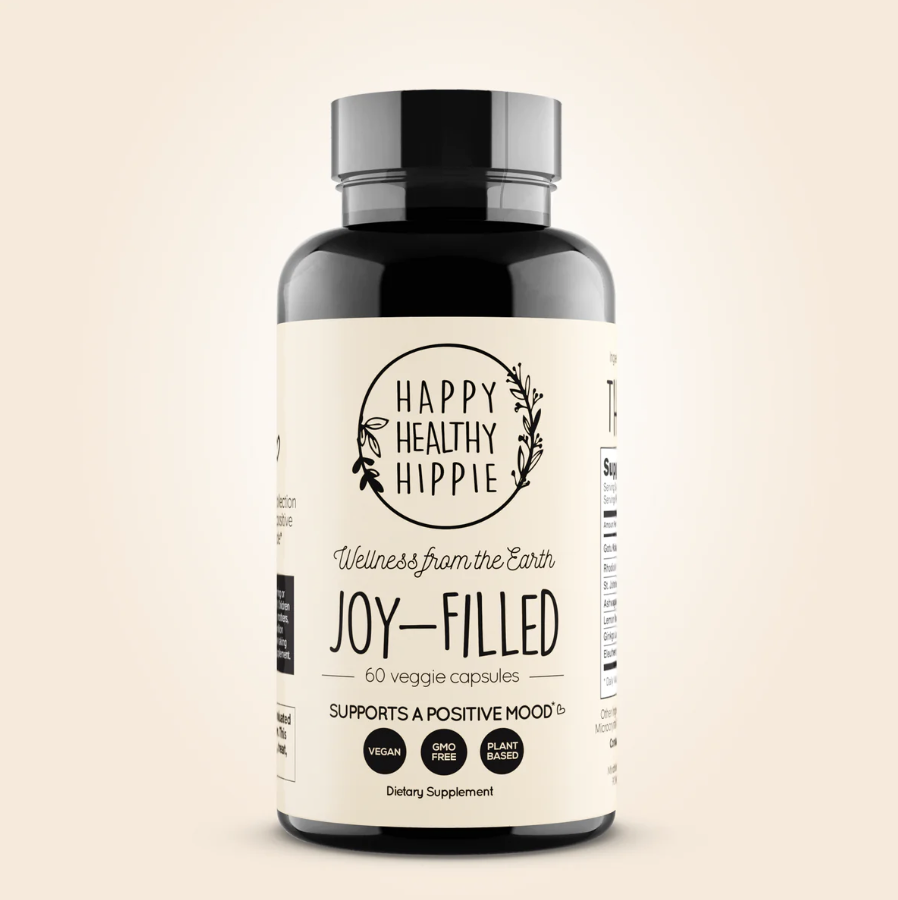Menopause can bring changes that impact your daily life. But did you know that certain foods can help ease these changes? Superfoods for menopause are packed with nutrients that support your body during this transition.
- Understanding Menopause
- Nutritional Needs During Menopause
- Superfoods for Hormonal Balance
- Combatting Menopause-Related Weight Gain
- Optimizing Digestive Health
- Supporting Memory and Cognitive Function
- Foods to Nourish Skin and Joints
- Strengthening Bones with Calcium-Rich Options
- Reducing Inflammation with Superfoods
- Ingredients to Limit or Avoid
Adding menopause superfoods to your diet can reduce inflammation and lessen symptoms like hot flashes and mood swings. These foods are rich in antioxidants, fiber, and other helpful compounds. Some top choices include berries, leafy greens, and legumes like soybeans and lentils.
You don’t need to overhaul your whole diet to benefit from these superfoods. Even small additions can make a big difference. Try sprinkling berries on your breakfast or adding some chickpeas to your salad. These simple changes can help you feel better and stay healthy as your body adjusts to menopause.
Understanding Menopause
Menopause marks a big change in a woman’s life. Your body goes through shifts that can cause many symptoms. Knowing what to expect helps you manage this time better.
Hormonal Changes and Menopause Symptoms
During menopause, your ovaries make less estrogen and progesterone. This drop in hormones leads to common symptoms. You might have hot flashes that make you feel very warm suddenly. Night sweats can wake you up, causing sleep problems.
Mood swings are another sign. You may feel irritable or sad for no clear reason. Some women get headaches or feel tired a lot. Brain fog can make it hard to focus or remember things.
Your periods become less regular. They might be heavier or lighter than usual. Eventually, they stop completely.
Identifying Perimenopause and Transition
Perimenopause is the time before full menopause. It often starts in your 40s but can begin earlier. Your periods may become irregular. You might skip months or have longer cycles.
Some women notice changes in their skin or weight. Hot flashes can start during this time. Mood swings and sleep issues are common too.
Perimenopause can last for years. It ends when you haven’t had a period for 12 months in a row. That’s when you enter menopause.
Tracking your symptoms helps you know where you are in the process. Talk to your doctor if you’re unsure or have questions about what you’re experiencing.
Nutritional Needs During Menopause
Your body’s needs change during menopause. You may need fewer calories but more nutrients to stay healthy.
Calcium and vitamin D are key for strong bones. Aim for 1,200 mg of calcium and 600-800 IU of vitamin D daily. Good sources include dairy, leafy greens, and fortified foods.
Magnesium helps with mood and sleep. Try to get 320 mg per day from nuts, seeds, and whole grains.
Vitamin B12 is important for energy. Eat eggs, lean meat, and fish to get the 2.4 mcg you need daily.
Fiber aids gut health and may ease hot flashes. Eat 25 grams daily from fruits, veggies, and whole grains.
Omega-3 fatty acids fight inflammation and support heart health. Eat fatty fish twice a week or consider a supplement.
Antioxidants protect your cells as you age. Fill your plate with colorful fruits and veggies.
Phytoestrogens may help balance hormones. Try soy foods, flaxseeds, and legumes.
To meet these needs, focus on whole foods. A balanced diet with lots of plants can help you feel your best during menopause.
Superfoods for Hormonal Balance
Certain foods can help balance hormones during menopause. These superfoods contain nutrients that support estrogen metabolism and overall hormonal health.
The Role of Phytoestrogens
Phytoestrogens are plant compounds that act like mild estrogens in the body. They can help ease menopause symptoms by binding to estrogen receptors.
Flaxseeds are rich in lignans, a type of phytoestrogen. Add ground flaxseed to smoothies or oatmeal. Soybeans and soy products like tofu also contain phytoestrogens called isoflavones.
Other good sources include:
- Hemp seeds
- Chickpeas
- Lentils
These foods may help reduce hot flashes and night sweats. Eat a variety of phytoestrogen-rich foods for the most benefits.
Foods for Estrogen Metabolism
Some foods support healthy estrogen breakdown in the body. This can help keep hormones balanced during menopause.
Cruciferous veggies like broccoli, cauliflower, and kale contain compounds that aid estrogen metabolism. Aim for 1-2 servings daily.
Seeds are nutritional powerhouses for hormone health:
- Pumpkin seeds provide zinc
- Sesame seeds offer calcium
- Sunflower seeds supply vitamin E
Maca root may boost libido and energy. Try maca powder in smoothies or energy balls.
Pomegranates can help manage estrogen levels. Enjoy the seeds or drink pure pomegranate juice.
Combatting Menopause-Related Weight Gain
Certain foods can help manage weight during menopause. Healthy fats and fiber-rich options play key roles in supporting metabolism and fullness.
Healthy Fats and Weight Management
Eating healthy fats can help you feel full and keep your weight in check. Almonds are a great choice. They’re packed with protein and good fats. Try adding a small handful to your daily snacks.
Chia seeds and flaxseeds are other smart picks. They contain omega-3 fatty acids that may help reduce belly fat. Sprinkle them on yogurt or add them to smoothies.
Avocados are another tasty option. They’re rich in monounsaturated fats that can curb hunger. Spread some on whole grain toast for a filling breakfast.
Fiber-Rich Foods
Fiber helps you stay full longer and may lower cortisol levels. This can help fight stress-related weight gain. Legumes like beans and lentils are fiber superstars. Add them to soups and salads.
Whole grains like brown rice and barley are also high in fiber. They can help steady blood sugar and keep cravings at bay. Swap out white rice for these options at meals.
Fruits and veggies are fiber-rich and low in calories. They’re perfect for filling up without packing on pounds. Aim to fill half your plate with colorful produce at each meal.
Optimizing Digestive Health
Menopause can affect your digestion. You may experience bloating, gas, and constipation. To keep your gut healthy, focus on fiber-rich foods.
Eat plenty of fruits, vegetables, and whole grains. These foods help your digestive system work smoothly.
Probiotics are your gut’s best friends. They support a healthy balance of bacteria in your digestive tract. Good sources include:
- Yogurt
- Kefir
- Kimchi
- Sauerkraut
Drink water throughout the day. It helps move food through your system and prevents constipation.
Regular exercise also aids digestion. A daily walk can make a big difference.
Limit foods that upset your stomach. Common culprits are spicy, fatty, or processed foods.
Consider adding fermented foods to your diet. They contain natural probiotics that support gut health.
If you have ongoing digestive issues, talk to your doctor. They can help you find the right solutions for your needs.
Remember, a happy gut contributes to your overall well-being during menopause. Small changes in your diet and lifestyle can lead to big improvements in how you feel.
Supporting Memory and Cognitive Function
Certain foods can boost your brain health during menopause. They may help with memory issues and brain fog that some women experience.
Omega-3s for Brain Health
Omega-3 fatty acids are key for your brain. They help build brain cell membranes. Fish like salmon and sardines are rich in omega-3s. You can also find them in walnuts and flaxseeds.
Try to eat fish twice a week. If you don’t like fish, consider a high-quality omega-3 supplement. These healthy fats may improve your memory and focus.
Omega-3s can also reduce inflammation in your brain. This may protect against cognitive decline as you age.
Antioxidant-Rich Berries
Berries pack a punch when it comes to brain health. Blueberries, strawberries, and blackberries are full of antioxidants. These compounds fight harmful free radicals in your body.
Eating berries may boost your memory. They can also improve how your brain cells communicate. This might help clear up brain fog.
Try adding a cup of mixed berries to your breakfast. You can also snack on them throughout the day. Frozen berries work just as well as fresh ones.
Foods to Nourish Skin and Joints
Eating the right foods can help keep your skin healthy and joints comfortable during menopause. Some key nutrients to focus on are vitamin C, omega-3 fatty acids, and antioxidants.
Salmon is a great choice for both skin and joint health. It’s rich in omega-3s that can reduce inflammation and keep your skin moisturized.
Eggs provide vitamin E, which is important for skin health. They also contain collagen, which helps keep your skin firm and joints flexible.
Kale is packed with vitamins C and K. Vitamin C boosts collagen production, while vitamin K supports bone health.
Almonds are another good source of vitamin E. They can help combat dry skin, which is common during menopause.
Here’s a quick list of other beneficial foods:
- Berries (high in antioxidants)
- Avocados (healthy fats for skin)
- Sweet potatoes (vitamin A for skin repair)
- Greek yogurt (protein for joint health)
- Olive oil (anti-inflammatory properties)
Try to include a variety of these foods in your meals. They can help nourish your skin and support joint comfort as you go through menopause.
Strengthening Bones with Calcium-Rich Options
Your bones need calcium to stay strong, especially during menopause. Luckily, many foods can help you get enough of this important mineral.
Dairy products are calcium superstars. Milk, yogurt, and cheese are packed with it. Just one cup of milk gives you about 30% of your daily calcium needs.
Fish can be great for your bones too. Canned salmon and sardines with soft bones are excellent choices. They provide calcium along with vitamin D and omega-3 fatty acids.
Don’t forget about leafy greens! Kale and broccoli are loaded with calcium. They’re also low in calories and high in other nutrients your body needs.
Here’s a quick list of calcium-rich foods to add to your diet:
- Milk and yogurt
- Cheese (especially hard cheeses)
- Canned salmon with bones
- Sardines
- Kale
- Broccoli
- Tofu (made with calcium sulfate)
- Fortified plant milks
Try to include these foods in your meals regularly. Your bones will thank you! Remember, getting enough calcium can help prevent osteoporosis and keep your bones strong as you age.
Reducing Inflammation with Superfoods
Eating certain foods can help reduce inflammation in your body during menopause. Salmon is a great choice. It’s packed with omega-3 fatty acids that fight inflammation and support hormone balance.
Other fish like mackerel, herring, and anchovies also contain these helpful omega-3s. Try to eat fish 2-3 times a week for the best effects.
Turmeric is a powerful spice that can lower inflammation. Add it to soups, stews, or smoothies. You can also try turmeric tea for a soothing drink.
Green tea is another good option. It has compounds that may reduce swelling and ease menopause symptoms. Drink 1-2 cups daily for the most benefit.
Some people find apple cider vinegar helpful. Mix a tablespoon with water and drink it before meals. This may help with digestion and inflammation.
Here’s a quick list of inflammation-fighting superfoods:
- Salmon
- Mackerel
- Herring
- Anchovies
- Turmeric
- Green tea
- Apple cider vinegar
By adding these foods to your diet, you can help manage inflammation and feel better during menopause. Remember to talk to your doctor before making big changes to your diet.
Ingredients to Limit or Avoid
Some foods and drinks can worsen menopausal symptoms. Knowing what to avoid and reduce can help you feel better.
Identifying Trigger Foods
Pay attention to foods that may trigger hot flashes or other symptoms. Spicy foods often cause problems for many women. Fatty and greasy meals can also lead to discomfort.
Keep a food diary to track what you eat and how you feel after. This can help you spot patterns. Common triggers include:
- Chocolate
- Tomatoes
- Citrus fruits
- Processed meats
Try cutting out suspect foods for a few weeks. Then slowly add them back to see how you react. Everyone is different, so find what works for you.
Impact of Alcohol and Caffeine
Alcohol and caffeine can affect your body during menopause. Both can disrupt sleep and worsen hot flashes.
Alcohol:
- Can trigger hot flashes
- May increase risk of breast cancer
- Can lead to weight gain
Caffeine:
- May cause sleep issues
- Can increase anxiety
- Might make hot flashes worse
Try to limit alcohol to 1 drink per day or less. For caffeine, stick to 1-2 cups of coffee daily. Switch to decaf or herbal tea in the afternoon. These small changes can make a big difference in how you feel.










